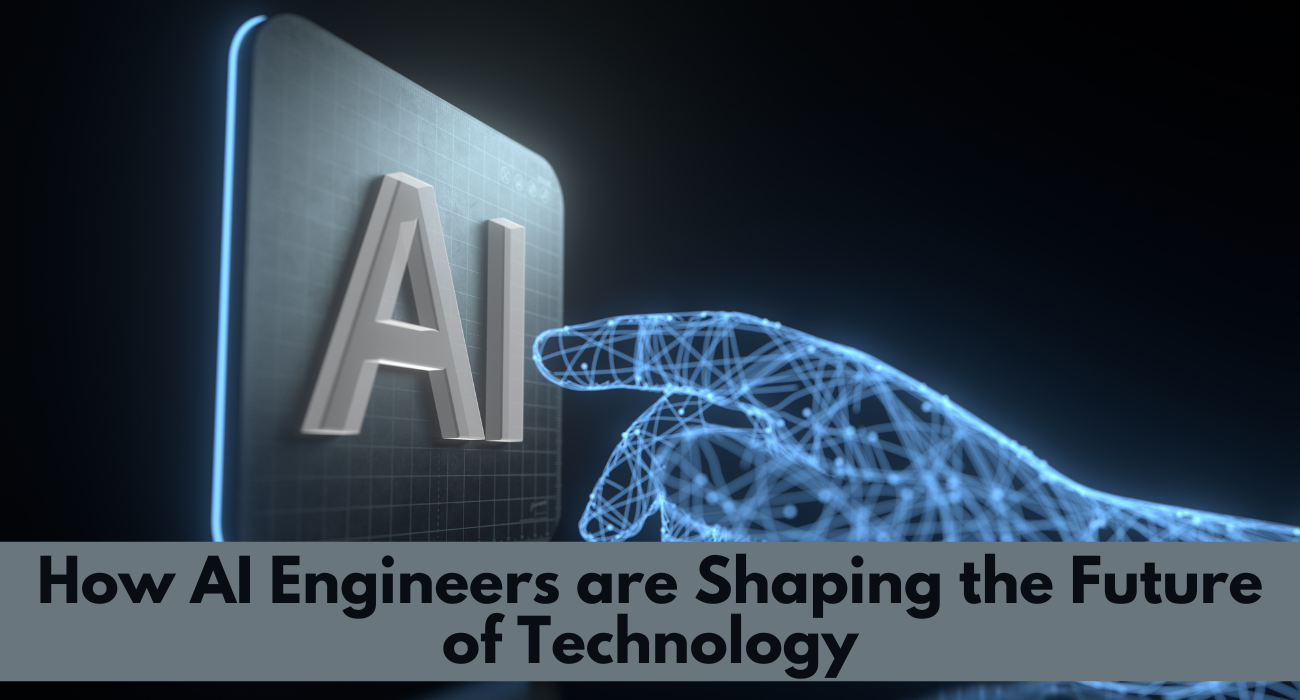The landscape of technology is changing at an unprecedented pace, and at the heart of this transformation are AI Engineers. These professionals are not just participants but pioneers in the development of artificial intelligence, pushing the boundaries of what machines can do and how they can help us in our daily lives. This blog explores how AI engineers are influencing various sectors and what it means for the future of technology.
The Role of AI Engineers
AI engineers are the architects of machine learning solutions. They build algorithms that enable machines to perform tasks that typically require human intelligence. This includes interpreting complex data, learning from such data, and making decisions based on it. AI engineers often specialize in different areas such as machine learning, natural language processing, or robotics.
AI Engineers Jobs: A Growing Field
The demand for AI engineers has skyrocketed as more industries seek to implement AI technologies. AI engineers are highly sought after in sectors such as healthcare, finance, automotive, and entertainment. They are responsible for designing and deploying AI models that can, for example, predict diseases from medical imaging, automate trading strategies, or improve autonomous vehicle technology. Consequently, the market for AI Engineer Jobs is growing, as more companies recognize the need for experts who can navigate the complexities of AI and machine learning to drive innovation and efficiency across various applications.
Key Responsibilities and Skills
AI engineers must have a robust set of technical skills including programming, statistics, and software engineering. They are often proficient in programming languages like Python or Java and tools such as TensorFlow or PyTorch. However, beyond technical skills, they must also possess strong analytical skills and creative thinking to solve complex problems and innovate.
Designing AI Systems
One of the primary responsibilities of AI engineers is to design AI systems that are not only effective but also efficient and scalable. They need to ensure these systems can handle large volumes of data and integrate seamlessly with existing technologies.
Machine Learning Engineer Jobs: Specializing in Algorithms
Machine learning engineers, a subset of AI engineers, specifically focus on creating data models and algorithms necessary for computers to perform specific tasks without explicit programming for each step. Their work involves a lot of experiments and adjustments to ensure accuracy and efficiency.
Impact on Various Industries
AI engineers are making significant contributions across many fields. Here are a few examples:
Healthcare
In healthcare, AI engineers develop algorithms that can diagnose diseases, recommend treatments, and predict patient outcomes more accurately and faster than traditional methods. AI-driven tools are increasingly used for personalized medicine, improving patient care and reducing costs.
Automotive
In the automotive industry, AI engineers are crucial in developing autonomous driving technologies. AI improves vehicle safety through predictive analytics and real-time decision-making, enhancing the driving experience.
Entertainment
In entertainment, AI engineers help create more engaging and personalized content. Algorithms can suggest movies and shows based on preferences or even influence how games are designed to adjust to the player’s skill level.
Challenges and Ethical Considerations
While AI presents vast opportunities, it also comes with challenges, primarily around ethics and job displacement. AI engineers are continually addressing issues such as data privacy, algorithmic bias, and the future of employment as machines become more capable.
Research Scientist Jobs: Pushing Frontiers of AI
Research scientists Jobs in AI focus on new ways of improving and understanding the algorithms that drive AI applications. This job involves both theoretical and practical aspects of AI and requires a deep understanding of various underlying principles.
The Future Shaped by AI Engineers
As AI technology evolves, the role of AI engineers becomes more critical. They are not just coding and developing algorithms; they are also at the forefront of ethical computing, ensuring AI benefits society without causing unintended harm.
Continued Learning and Adaptation
AI engineers must keep up with rapid technological changes by continuously learning and adapting. The field of AI is ever-evolving, with new tools, techniques, and best practices emerging regularly.
Conclusion
AI engineers play a pivotal role in shaping the future of technology. Through their expertise, creativity, and ethical judgment, they are not only advancing their fields but are also ensuring that the integration of AI into daily life is beneficial and sustainable. As we look towards a future where technology’s role in society is bound to increase, the importance of skilled AI engineers cannot be overstated.

